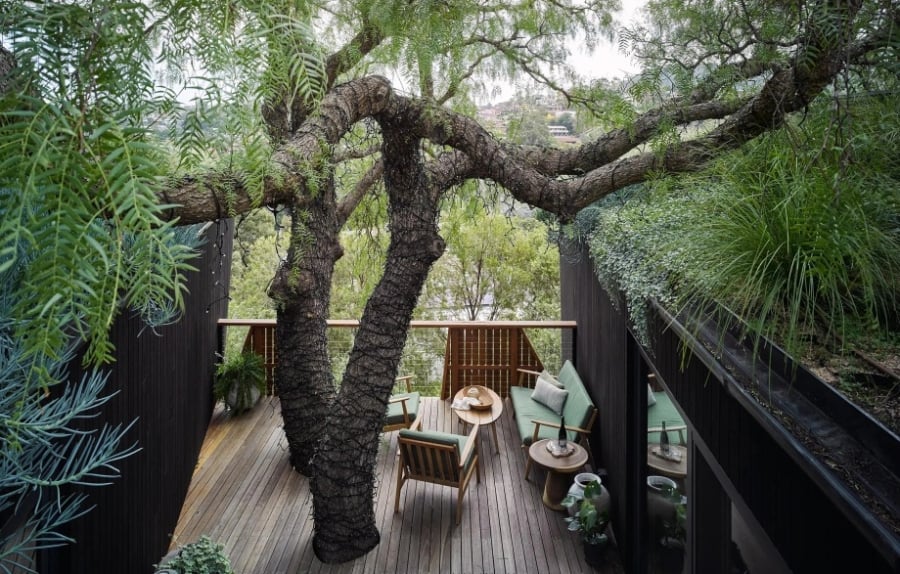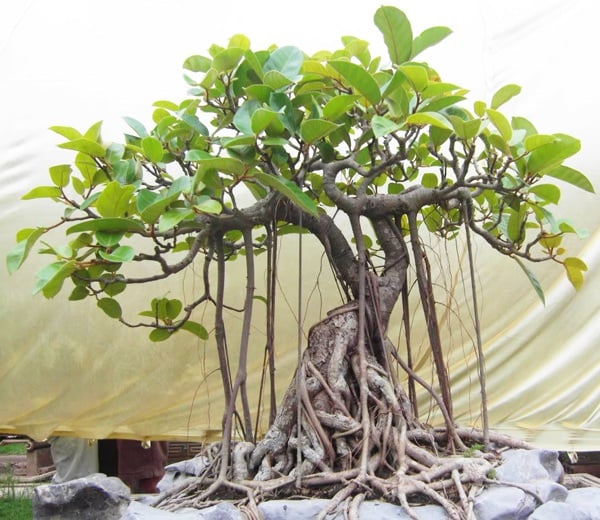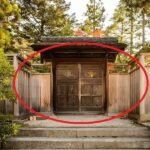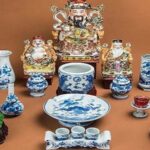In feng shui, there are trees that possess “yang” energy, which helps to regulate the flow of energy and invite prosperity. However, there are also trees with “yin” energy, which, despite their lush appearance, attract negative energy and allow yin energy to flourish, depleting the yang energy in the home. Living in such an environment for an extended period can lead to misfortune, disputes, and financial losses for the homeowners.

1. Mulberry Tree – The Greener, the More Unfortunate
A common saying in Vietnamese folklore is, “Plant cau and chuối, but stay away from the mulberry tree.” The mulberry tree is associated with the underworld and is often used in exorcism rituals to ward off evil spirits. While it has beneficial properties in medicine and spirituality, planting it in front of a house brings a strong yin influence.
According to feng shui principles, the mulberry tree absorbs positive energy and blocks the flow of auspicious energy into the house, making it difficult for wealth to accumulate, and adversely affecting the health of the occupants. The more lush and vibrant the tree, the more yang energy it absorbs, leading to disharmony among couples and rebellious children.
2. Willow Tree – Soft and Delicate, Yet Depletes Yang Energy
The willow tree, though beautiful and graceful, is not suitable for planting in front of a house. The word “willow” in Vietnamese, “liễu”, sounds similar to the word “lưu”, which means “to flow away” in Sino-Vietnamese. This symbolism suggests that wealth and blessings will be swept away rather than accumulating.
Additionally, willow trees typically grow along rivers, in areas with strong yin energy. Planting them in front of a house obstructs the flow of yang energy, resulting in a cold and gloomy atmosphere over time. This can lead to a decline in financial luck and a negative impact on the health of the occupants.
3. Chinese Juniper Tree – Heavy with Mourning, Bringing Bad Luck
The Chinese juniper, especially the spreading juniper or Chinese juniper, is commonly found in cemeteries and temples – places with a dense field of yin energy. In feng shui, the Chinese juniper symbolizes separation, loss, and mourning.
When planted in front of a house, the strong yin energy field of the Chinese juniper can affect the mental state and luck of the family. Homeowners may experience sadness, prolonged illnesses, stagnation in their endeavors, and even financial losses without a clear reason.
4. Banyan Tree – A Spiritual Tree Not Meant for the Home
In folk beliefs, the banyan tree is considered a dwelling place for spirits and souls, often found in temples and shrines. In the past, people avoided planting banyan trees in or in front of their houses for fear of inviting spirits to reside there.
The banyan tree has a massive root system that, when planted in front of a house, can affect not only the structure of the building but also the feng shui of the residence. Homes with a banyan tree in front are prone to disputes, restless sleep, and difficulties in their endeavors.

5. Chinese Parasol Tree – Absorbing the House’s Energy, Leading to Financial Loss
Similar to the banyan tree, the Chinese parasol tree is also considered to have a heavy yin influence and is commonly found in village temples and shrines. In feng shui, this tree is at the top of the list of trees that hinder financial luck, casting a shadow over the house.
The more lush and vibrant the Chinese parasol tree, the deeper its roots grow, and the more it absorbs the surrounding energy. When planted directly in front of a house, it diminishes good luck, creates stagnant energy, and makes it difficult for wealth to accumulate. Occupants of the house may also experience disharmony and arguments.
Advice from a Feng Shui Expert
-
If you have inadvertently planted any of the aforementioned trees in front of your house, consider relocating them to the side or back garden, if possible.
-
Replace them with trees that possess “yang” auspicious energy, such as potted cau trees, bamboo, money plants, gold thread cypress, or jade plants, to attract good luck and enhance positive energy.
-
Maintain a spacious and clean entrance and courtyard, free from overgrown trees and bushes, to allow beneficial energy to enter and wealth to accumulate.
“A house is a place where energy gathers – if the energy gathered is positive, the occupants will enjoy good health and prosperity. If the energy gathered is negative, the occupants may experience ill health and loss.” While trees with yin energy possess their own beauty and value, placing them in the wrong location – especially in front of the house – can turn them into an invisible source of misfortune.
Examine your yard to see if you have any of these trees. Making timely adjustments to your feng shui can bring about positive changes in your destiny.
(This article is for reference only)





































